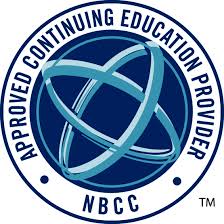
June 20, 2025
7:00am – 2:30pm Pacific Time
(10:00am – 5:30pm Eastern Time)
Presented via Zoom Video Communications
PRESENTED BY
Colleen Sloan, PhD
COURSE DESCRIPTION
LGBTQ+ people experience health inequities including increased risk for suicide (de Lang et al, 2022; Ream 2019) and other mental health problems including PTSD, depression, and substance use problems, generally reflecting underlying emotional and behavioral regulation difficulties. Dialectical Behavior Therapy (DBT; Linehan, 1993; 2015) is the gold-standard, evidence-based intervention for people struggling with emotional and behavioral dysregulation, particularly chronic suicidal behavior. Rooted in a Biosocial theory, describing a transactional process underlying the development of emotion dysregulation, DBT has the potential to lend itself well to minoritized communities, in that it both emphasizes the role of invalidating environments and conceptualizes behavioral responses to such environments as reasonable. As such, this approach offers an empathic formulation of problems disproportionately impacting LGBTQ+ communities and transparently highlights harms of environmental invalidation. Relatedly, minority stress theories (Brooks, 1981; Hendricks & Testa, 2012; Meyer, 2003) also name environments that pathologize and invalidate minoritized experiences as problematic and as both directly and indirectly contributing to well-documented mental health disparities in LGBTQ+ and other marginalized communities.
Despite the theoretical reach of DBT, its content may be considered limited with respect to cultural responsiveness, leaving well-intentioned clinicians potentially ineffectively prepared when working with minoritized clients, including those who have LGBTQ+ identities and other intersecting marginalized identities, which may interfere with treatment engagement and outcomes.
In this training, Dr. Sloan will provide a brief overview of LGBTQ+ health inequities. Next, participants will be provided with psychoeducation regarding minority stress theories and ways to integrate these theories with the Biosocial model of emotion dysregulation. Specific ways to tailor discussions during feedback, commitment, and orientation sessions will be offered. Comprehensive examples of invalidation of LGBTQ+ identities and lived experiences will be provided and examples of ways to discusses these in culturally responsive ways will be provided. Finally, ways to modify and tailor discussion and teaching points within all four skills training modules will be a focus of this training.
LEARNING OBJECTIVES
Following this training, participants will be able to:
- Develop case conceptualizations that integrate minority stress theories with the biosocial model of emotion dysregulation
- Identify multi-level examples of invalidation of LGBTQ+ identities and lived experiences
- Articulate ways to modify orientation materials when conducting DBT skills training groups with LGBTQ+ clients
- Articulate ways to tailor DBT skills training discussion and teaching points to increase cultural responsiveness with group clients who have LGBTQ+ and other minoritized identities
- Define intersectionality and articulate ways to increase cultural responsiveness when working with LGBTQ+ clients who have other minoritized identities in individual and group modes of DBT
Instructor | Colleen A. Sloan, Ph.D.(she/her) is Clinical Associate Professor of Psychiatry at Boston University Chobanian & Avedisian School of Medicine. She is involved both locally and nationally in education, training, and consultation in LGBTQ+ health. She has expertise in treatment for trauma-related problems and emotion dysregulation including Prolonged Exposure and Dialectical Behavior Therapy (DBT). Her research interests involve LGBTQ+ health disparities and the utilization and modification of evidence-based psychotherapies, particularly DBT and trauma-focused treatments, when working with LGBTQ+ clients.
CONTINUING EDUCATION HOURS
 Participants who complete the full training will earn 6 CE hours.
Participants who complete the full training will earn 6 CE hours.
Portland DBT Institute has been approved by NBCC as an Approved Continuing Education Provider, ACEP No. 6326. Programs that do not qualify for NBCC credit are clearly identified. Portland DBT Institute is solely is responsible for all aspects of the programs.
PRICING
| Individual Registration Fee $249.00 |
Group Registration Fee for 3 or more $225.00 / person |
Students are eligible for 15% off individual registration fee* |
*email training@pdbti.org for student discount code
Private Training Requests
Portland DBT Institute training is available to schedule as a private training for your group. PDBTI’s training team travels locally, nationally, and internationally, to provide evidence based, adherent DBT training. Please fill out our Training Request Form and a training coordinator will contact you to see how we can work together to exceed your organization’s training goals.
Cancellations and Refunds
A $60.00 handling fee will be deducted upon cancellation. Refund requests by fax or email must be received two weeks before the training date. In addition, the fees are non-transferrable.
PDBTI reserves the right to cancel any program due to under-enrollment, or any course due to work stoppages, instructor illness or inclement weather. If a course is cancelled, PDBTI is responsible for refunding only the course fee.
